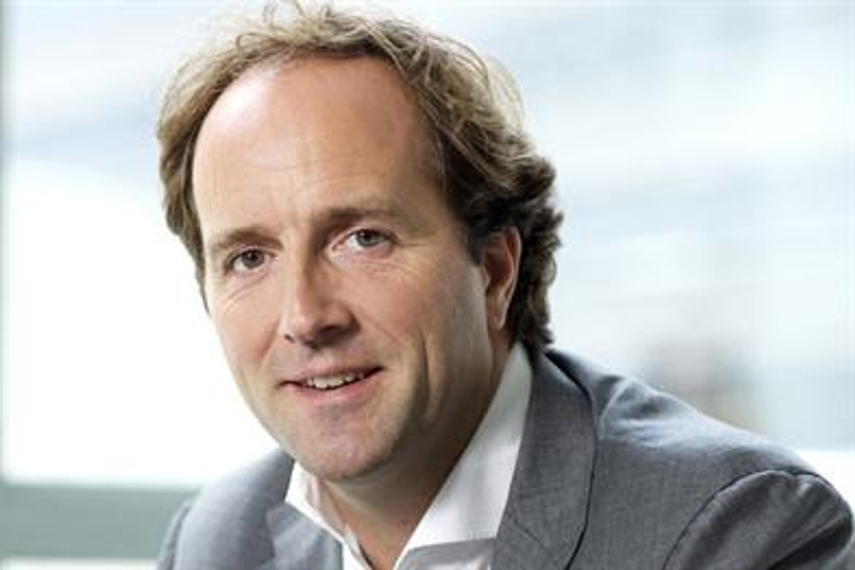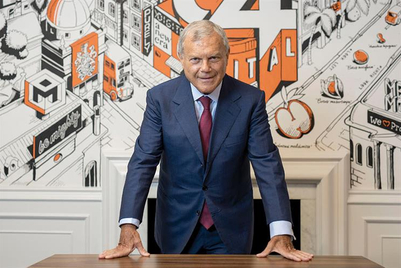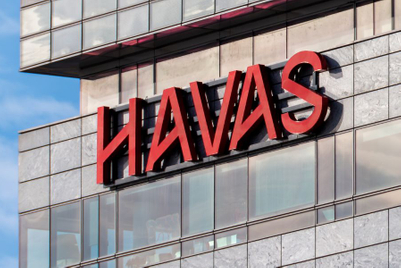
Speaking to Campaign ahead of Sorrell appearing on stage at the Cannes Lions festival tomorrow, Jones was unequivocal in his feelings for his 67-year-old rival.
Sorrell suffered an embarrassing unbinding revolt by shareholders, when the majority (59%) voted against his proposed annual pay last week, amounting to a 60% rise in total remuneration to £6.8 million and total take-home pay near £13m after deferred share bonuses and pension contributions.
Jones said: "My belief is, at the end of the day, it is all tied into the value people create and generate. Very few people ever said it’s an outrage what Steve Jobs earns, or isn’t it terrible what Mark Zuckerberg earns, because they saw a real value in their lives.
"I think where they see a business leader spectacularly get it wrong and get a massive reward for it, they do have a problem.
"My personal view on Sorrell is, as a competitor, I think if he were to resign and leave over this, it would be a great thing for us.
"If I was a shareholder, they have to hope and pray he doesn’t leave, because the day that Sorrell leaves WPP, I’ll be licking my lips and rubbing my hands together, because no-one else is going to be able to go in after Sorrell and keep that company in the position it’s in, and it will start to dramatically decline."
WPP's investor revolt follows rival marketing group leader, Maurice Levy, coming under attack during the French presidential election in April, after his €16 million bonus, accrued since 2003, became public.
Jones said: "Sorrell has genuinely built that company. And if you look at it in the scheme of what he has built and created, and I would say it’s a very similar thing for Maurice Levy in France, they have genuinely earned that money. If those two people left those companies, the smallest issue the shareholders would have, is how much they were paying them.
"So as a competitor I think ‘brilliant’, let’s hope he leaves."
However, on the wider issue of increased scrutiny of pay in public companies, which has also seen Barclays chief executive Bob Diamond, and Credit Suisse chief executive, Brady Dougan, hit with investor protest this year, Jones agreed with the sentiment.
The 46-year-old Havas leader, who last year wrote the book 'Who Cares Wins', which seeks to highlight "why good business is better business", noted: "There’s a zeitgeist going on in the world, which is a ‘have’ and ‘have-not’, and from a big-picture level it is a very good thing because why did the world get into such a mess?
"It was because of irresponsible leadership on behalf of government leaders who ran up far too much debt, on behalf of business, particularly the finance sector, who were getting massive incentives to take highly speculative, dangerous risks.
"And so, if we’re going to have a sustainable recovery, it’s got to be a responsible recovery. And the whole rebellion on pay is part of that."
He added: "Part of it is boards need to be sending a signal to the world that they are treating the issue of executive pay very seriously."
The right thing for green-blooded capitalists
Jones, whose book has struck a chord with a diverse range of public figures, including Bob Geldof, Arianna Huffington and John Simpson, also stressed it was no longer enough for big multi-conglomerates to talk a good game without action in the realms of social responsibility.
For him, the importance of authenticity and CSR is a real and growing concern for an increasing number of brands, but far from the easy road to take.
He said: "The financial markets are still very much, ‘what are this quarters profits?’, and if you as someone like Paul Polman (Unilever) are not outperforming your competition from a shareholder perspective, you give credence to the argument that ‘business x isn’t worrying about this do well to do good, do good to do well, and they’re doing much better. So I think it’s very hard to take a big business and change it."
He added: "It’s totally the right thing for what I call the green-blooded capitalist to do this, but it’s tough. It’s a very tough position to take and you set yourself up for a fall. But there’s not a client I speak to nowadays for whom it’s not a big deal."
In an attempt to highlight the impact social platforms now have on the world, one part of his book concentrates on its use in the revolutions and protests that swept the Arab world in spring 2011; "where the combination of technology, youth and offline protest caused previously unshakeable regimes to topple".
The chapter had to be removed before the book launched in communist China earlier this month. For Jones though, such a response only serves to fuel his beliefs surrounding the significance of the new phenomenon.
He said: "For those of you who still haven’t got the power of social media, I had to remove the sector of the book before China would publish it."
The article first appeared on Campaign Live


.jpg&h=334&w=500&q=100&v=20250320&c=1)




.jpg&h=334&w=500&q=100&v=20250320&c=1)


.jpg&h=334&w=500&q=100&v=20250320&c=1)


.jpg&h=268&w=401&q=100&v=20250320&c=1)
.png&h=268&w=401&q=100&v=20250320&c=1)




.jpg&h=268&w=401&q=100&v=20250320&c=1)
